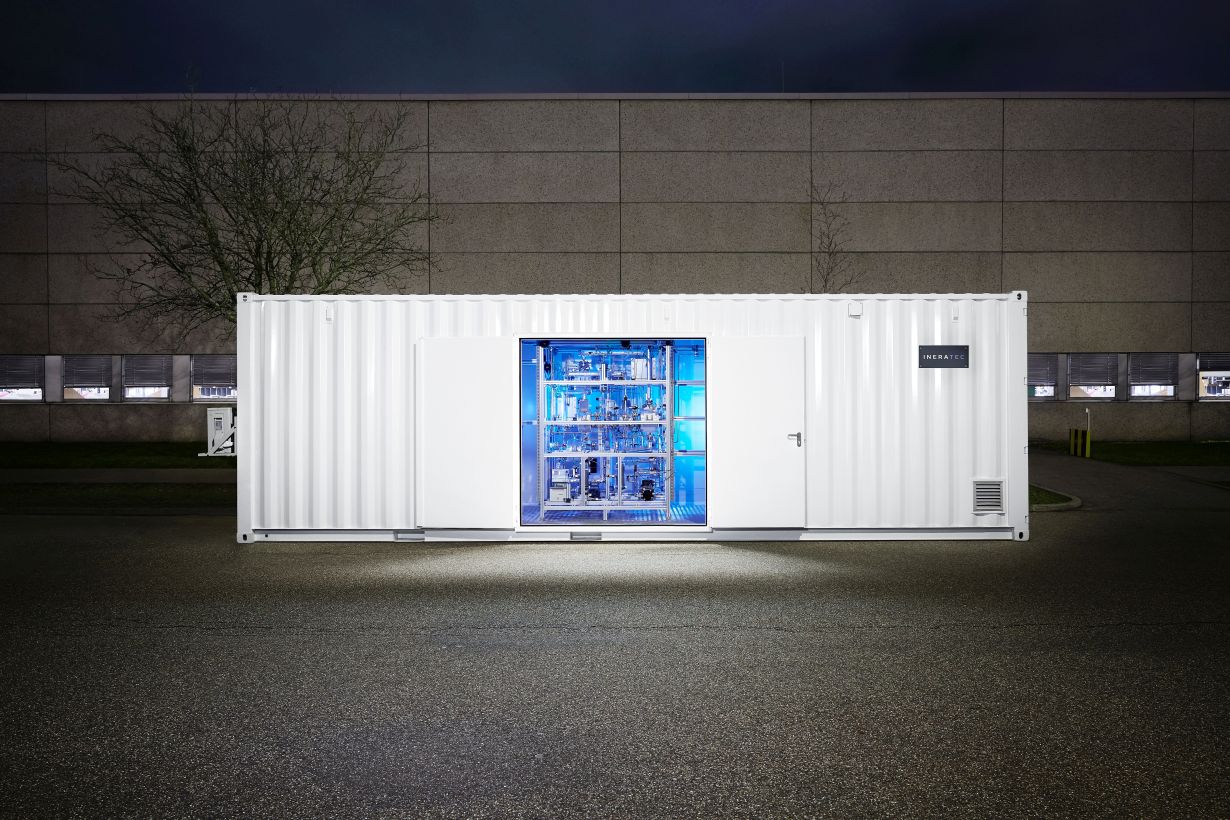INERATEC, a spinoff of Karlsruhe Institute of Technology (KIT), and the Spanish company GAS NATURAL FENOSA are presently making an important step towards closing the carbon dioxide cycle. In Sabadell, Catalonia, they built a plant that produces synthetic natural gas from climate-damaging carbon dioxide (CO2) and renewable hydrogen. The process is based on the production of hydrogen by electrolysis and its reaction with CO2 from biogenic sources, e.g. sewage sludge.
At the sewage treatment plant of the city of Sabadell (200,000 inhabitants) near Barcelona, large amounts of the basic materials required are available, INERATEC’s Managing Director Tim Böltken explains. “The process uses energy from renewable sources and stores it in the chemical energy carrier methane. In the past four years, Spain already produced 40% of its power from renewable energy sources, mostly wind energy,” the alumnus of KIT adds. With the power-to-gas process, excessive or decentrally produced power from renewable sources, such as solar or wind power, is converted into methane.
It is aimed at producing renewable gases compatible with natural gas supply in Spain. The big advantage: the renewable gas can be stored in the existing gas infrastructure and transported to areas all over Spain. Gas storage capacity in Spain amounts to about 30 terawatt hours, which means that the power produced by wind power plants there can be stored for half a year.
So far, such decentralized production has not been economically efficient, as the chemical process usually requires extremely expensive, large chemical facilities. The INERATEC founders succeeded in developing a compact modular facility, such that the capacity can be increased as required.
For the time being, the pilot plant at Sabadell is to produce 100 m3 gas per day. It is additionally equipped with a catalyst developed by the Catalonian Institute for Energy Research (IREC) for the conversion of CO2 from biogenic sources. The plant is part of the Spanish project Synthetic Fuels – Combustibles Sintètics (CoSin) that is funded by the European Regional Development Fund.
More about the KIT Energy Center: http://www.energy.kit.edu
In close partnership with society, KIT develops solutions for urgent challenges – from climate change, energy transition and sustainable use of natural resources to artificial intelligence, sovereignty and an aging population. As The University in the Helmholtz Association, KIT unites scientific excellence from insight to application-driven research under one roof – and is thus in a unique position to drive this transformation. As a University of Excellence, KIT offers its more than 10,000 employees and 22,800 students outstanding opportunities to shape a sustainable and resilient future. KIT – Science for Impact.

